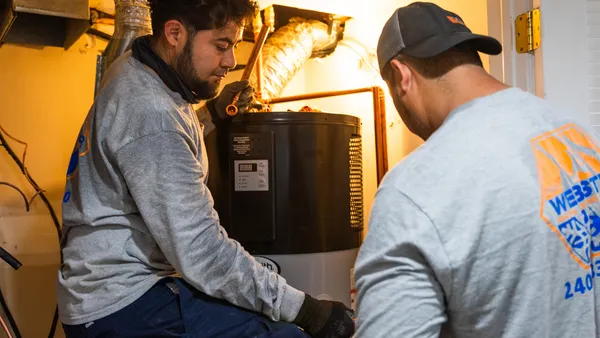Dive Brief:
- Bill Gates' investment group Belmont Partners has spent $80 million on a 24,800-acre plot of land outside of Phoenix with the goal of turning it into a smart city, according to KPNX-TV and others.
- Belmont Partners released a statement explaining the community will have a "communication and infrastructure spine that embraces cutting-edge technology, designed around high-speed digital networks, data centers, new manufacturing technologies and distribution models, autonomous vehicles and autonomous logistics hubs."
- The community is slated to have room for 80,000 residential units. Additionally, 3,800 acres of land will go toward office, commercial and retail space, while 470 acres will be used for public schools.
Dive Insight:
Ronald Schott, an executive at Arizona Technology Council, has touted Gates' location decision for the city due to its proximity to the proposed I-11 freeway and Las Vegas. The location is also said to be "in the desert," which gives Belmont Partners the ability to build the city on a clean slate instead of needing to tear down existing infrastructure.
Though the process of building a smart, connected city rarely happens in this manner. Generally, cities that have been developed over decades will slowly make decisions to become more technologically-advanced or resilient, causing a need to re-build parts of the city or re-design the landscape. Building from the ground-up is a more expensive and risky approach — one that sometimes looks more appealing in renderings than in actuality. In Ashburn, VA, the 16.8-acre Gramercy District is being built from scratch with the intention of being the region's first holistically "smart city" where people will want to "live, work and play," yet there has been little reported interest in area residents actually moving there.
In order to fill Gates' community with residents, the investment firm will need to develop a city that has affordable housing, accessible transit, classic entertainment attractions and a sense of culture — elements that exist in most of today's smart cities across the U.S. If Belmont Partners doesn't consciously include these features into the design of the city, it is likely to fail, no matter how much money is invested.











